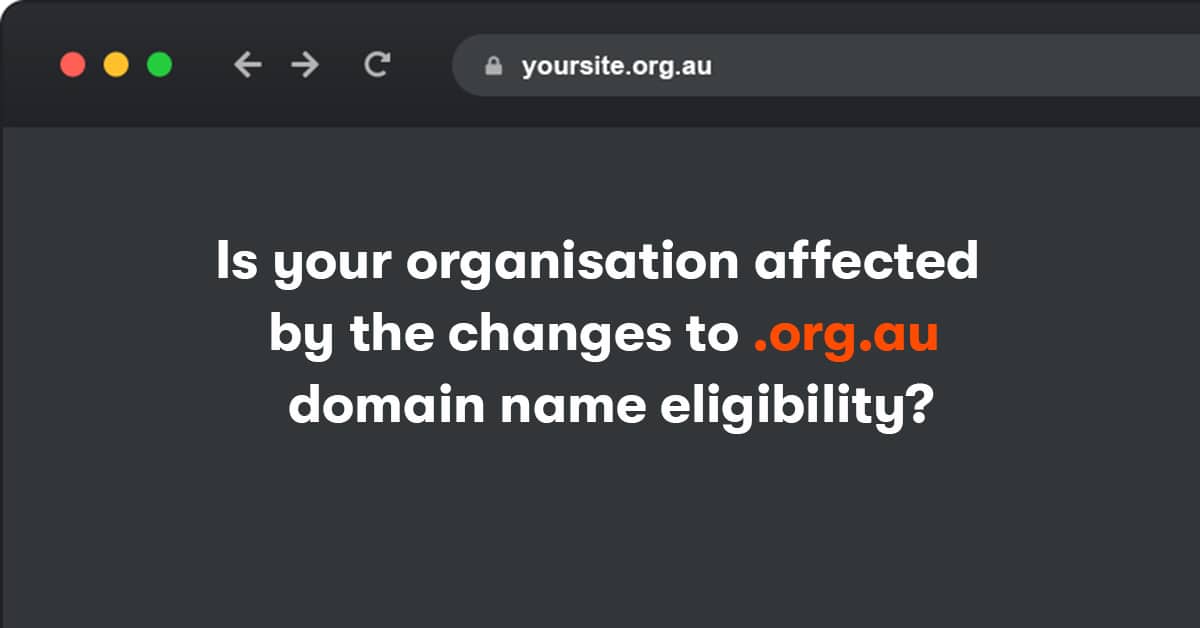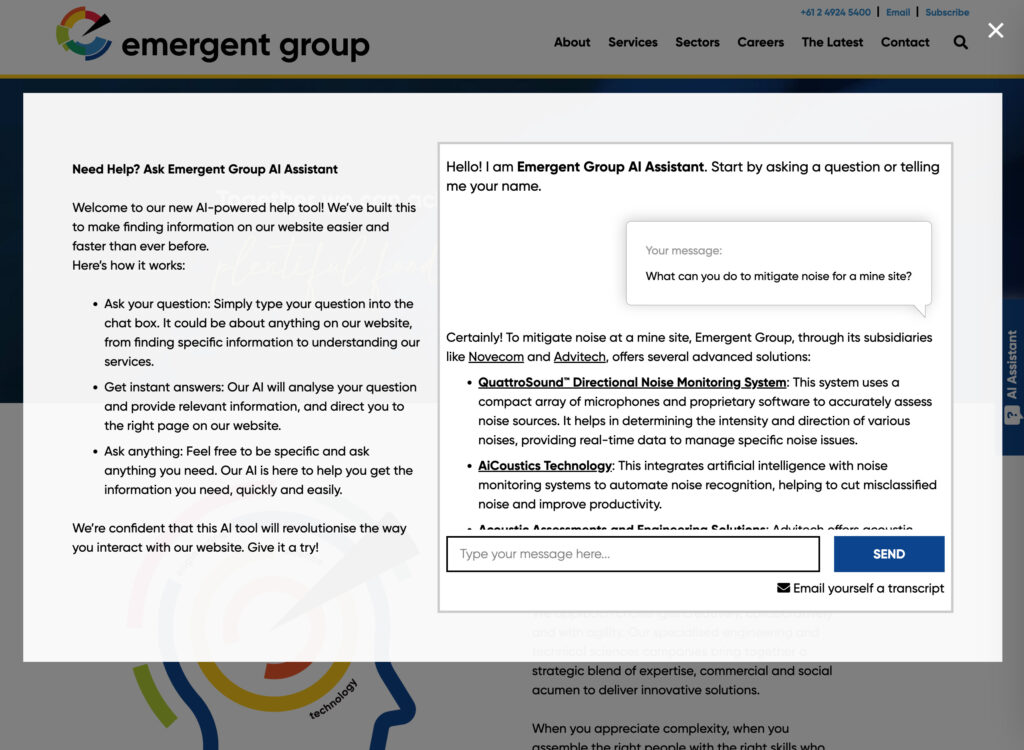The 12th of April will see new rules apply affecting the .au namespace. Australian Domain Name Administrator (auDA) announced the new rules late last year and have potentially disruptive implications for organisations with websites using the .org.au. The rules will not be retrospective but apply to new registrations, transferals, and also renewals. There are also changes affecting .com.au, .net.au, and .id.au. The changes are part of a large overhaul in how auDA is regulating the use of .com.au domain names.
The most significant change for our clients is those affecting .org.au domains. Previously, organisations could register a .org.au domain name if they were a not-for-profit. This definition could be applied to clubs, research groups, charities, and some health providers.
There are 11 categories of eligibility:
- an Incorporated Association under State or Territory legislation;
- a Company limited by guarantee under the Corporations Act 2001(Cth)
- a Non-distributing co-operative registered under State or Territory legislation;
- an Indigenous Corporation registered under the Corporations (Aboriginal and Torres Strait Islander) Act 2006(Cth) and which appears on the Register of Aboriginal and Torres Strait Islander Corporations;
- a Registered Organisation that is:
(a) an association of employers;
(b) an association of employees (union); or
(c) an enterprise association;
registered under the Fair Work (Registered Organisations) Act 2009(Cth) and which appears on the Register of Organisations; - a Charitable trust endorsed by the Australian Taxation Office as a Deductible Gift Recipient;
- a Non-trading cooperative under State or Territory legislation;
- a Public or Private Ancillary Fund endorsed by the Australian Taxation Office as a Deductible Gift Recipient;
- an unincorporated association that appears on the Register of Charities established under the Australian Charities and Not for Profit Commission Act 2012(Cth);
- a Political Party registered under the Commonwealth Electoral Act 1918(Cth) or State or Territory Electoral Act and which appears on the Register of Political Parties or as otherwise named; or
- Government, being either the Crown or a Commonwealth, State or Territory statutory agency.
New to this definition are:
- Indigenous corporations;
- Co-operatives;
- Registered state and territory political parties; and
- Government, being either the Crown or a Commonwealth, State or Territory statutory agency.
More about the latter two in this article.
It is the first category where some current users of .org.au domain names might need to ready themselves for the change. Under the new rules, unincorporated associations are not eligible to hold org.au names unless it appears on the Australian Charities and Not for Profit Commission’s (ACNC) Register of Charities.
If you are a not-for-profit organisation that is not incorporated as an association, your options are:
- register as an association,
- register an equivalent domain name using .com.au, .net.au, or .asn.au.
- register an equivalent domain name using .club, .community, .study, or any of the non-geographic top-level domains.
If you elect to use a different domain name, you will lose your .org.au domain name, therefore will need your website development to migrate your website to the new domain. This is likely to involve a temporary additional hosting account until the migration is complete.
It is important to start either process now. Registration of association takes a bit of paperwork and organisation. If you need to register and move your website, it is best to do this well in advance of losing your .org.au to allow the hosting of 301 redirects of site URLs. This will ensure that your site does not suffer any SEO penalty for 404 (Page not found) errors from traffic to your expired .org.au domain name. You will also need to change the domain name on all your associated digital and printed material, which may also require some lead time. The nature of the change of rules will give no mechanism for temporary diversions.
We are writing to all our .org.au domain users to alert them to the change and will be on hand to assist anyone with the transition.




